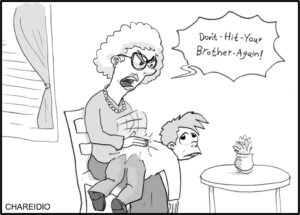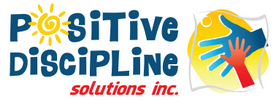To Punish or Not to Punish Your Child
Despite all the research that points to the necessity of a more positive response to children’s challenging behaviour, punishment is still the common “go to” for many adults in response to that challenging behaviour.
But what do children learn from punishment? Do they learn to do better next time? Do they learn important life skills? The answer is most often a resounding “No”.
In my live workshops, I often ask people to think back on a time they were punished as a child. When the question is asked, most can recall an incident.
Next I ask them what they learned from being punished. Most often their responses include: “not to get caught next time”, “not to do whatever they did again (out of fear)”, or “that he or she was bad” and so on.
In my Discipline with Influence Online Parent Program, I outline a number of negative consequences that may occur as a result of punishment.
In response to punishment a child may:
- Become defiant and rebellious.
- Become revengeful and develop the desire to “hurt back”.
- Develop low self-esteem. This can cause the child to withdraw and think they are a “bad person”.
- Lie and not take responsibility for their actions.
- Become “sneaky” with their actions. In other words, they to continue to do what they want to do anyway, they’ll just go “underground” with the behaviour.
You see, punishment involves methods that are geared towards “controlling” children. Unfortunately when we really look at it, controlling children is impossible. At least to the degree that adults think they should be able to control children or want to.
Rather than trying to control, adults need to focus on having a positive influence on children and on helping them do better next time. In other words they need to guide and teach children and give them the tools “to do well” both in the present and the future.
“Children do well when they can”. –Dr. Ross Greene
The key is to help children develop responsibility for their actions and learn from their mistakes rather than paying for them through punishment.
There are so many more effective ways to respond to children’s undesirable behaviour and so many ways to guide children towards doing well, not only behaviourly but in all areas of their life!
Be an adult that positively influences children and sets them up for success!
Visit www.disciplinewithinfluence.com to access my 7 module online Discipline with Influence Program.
